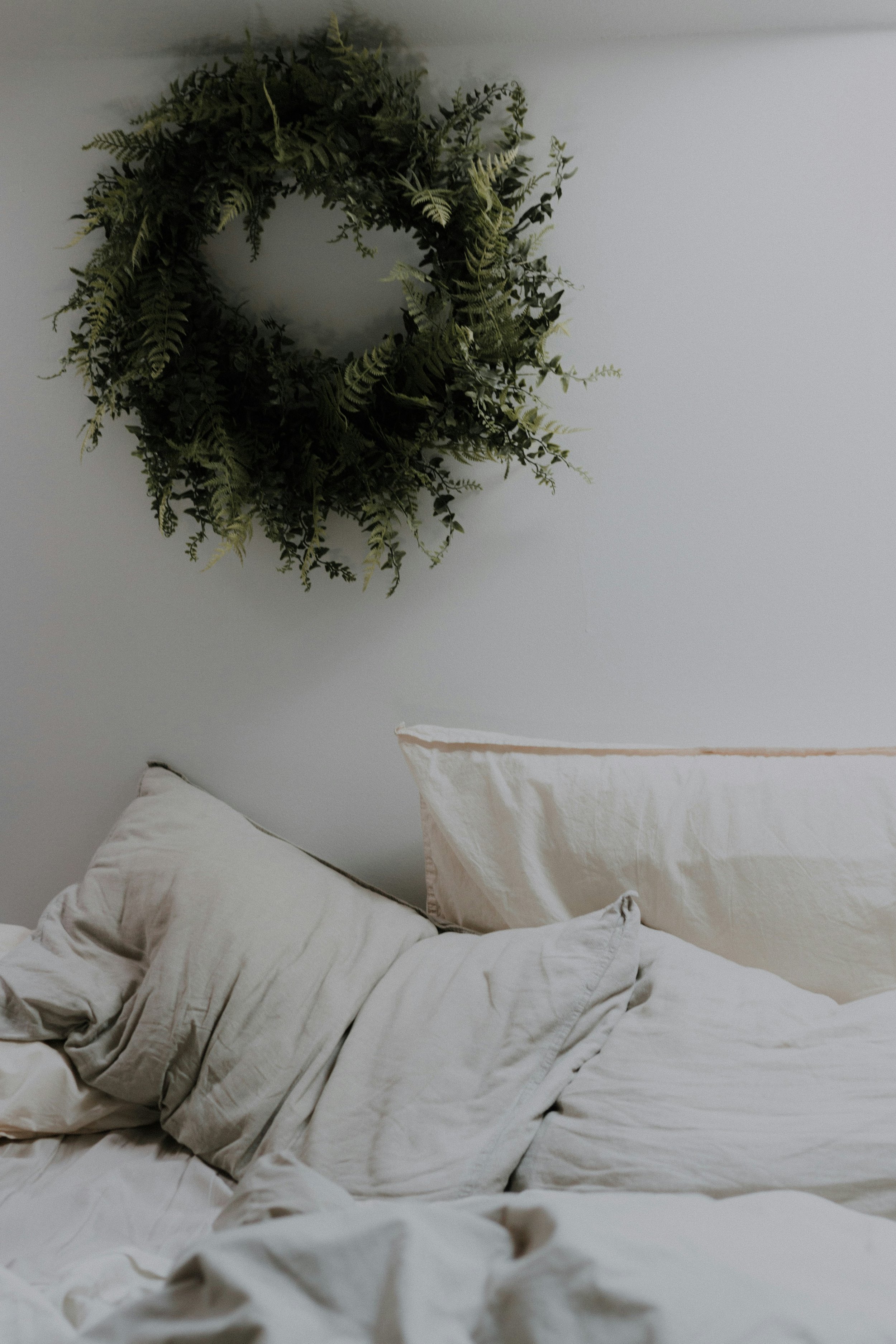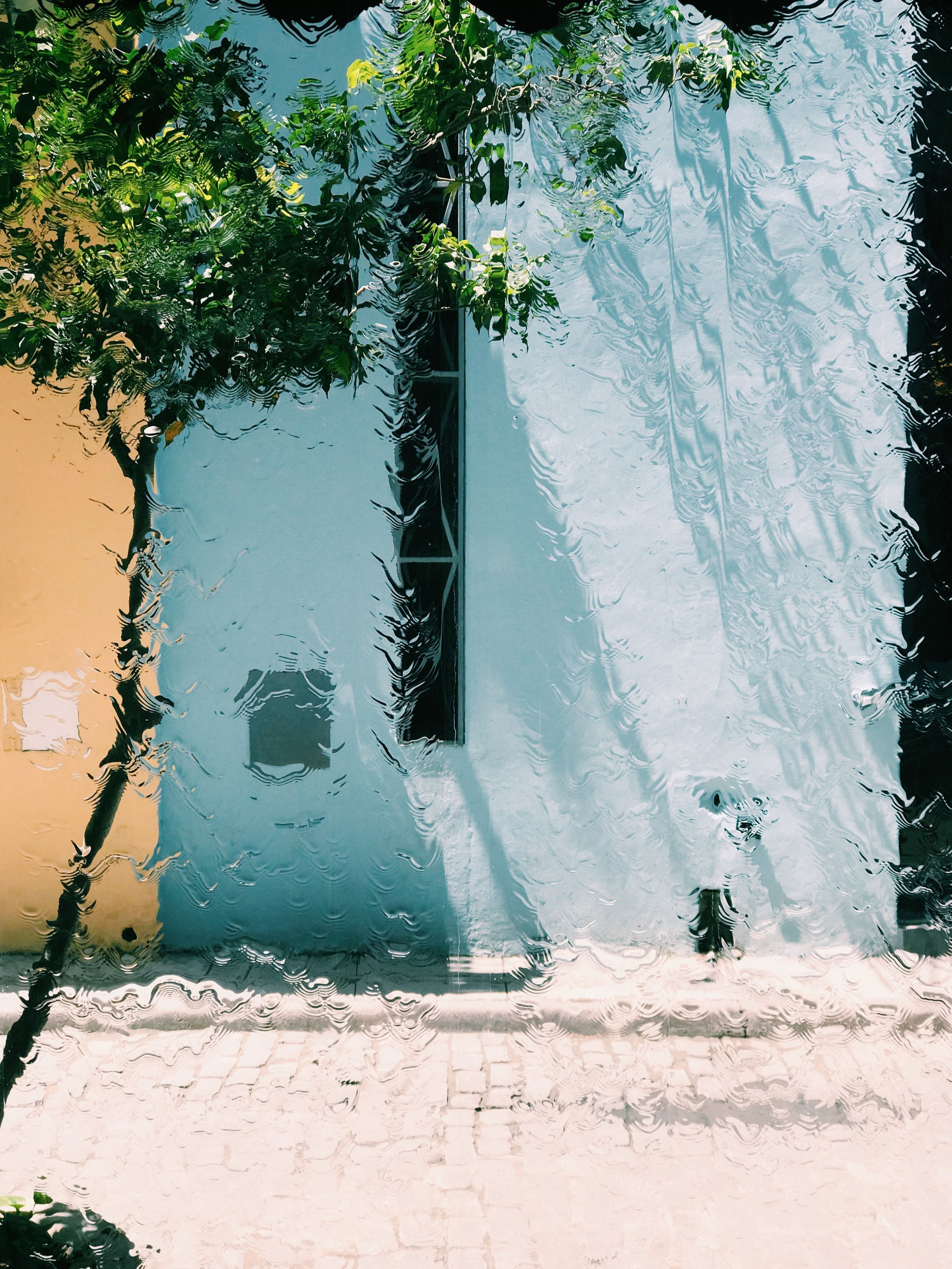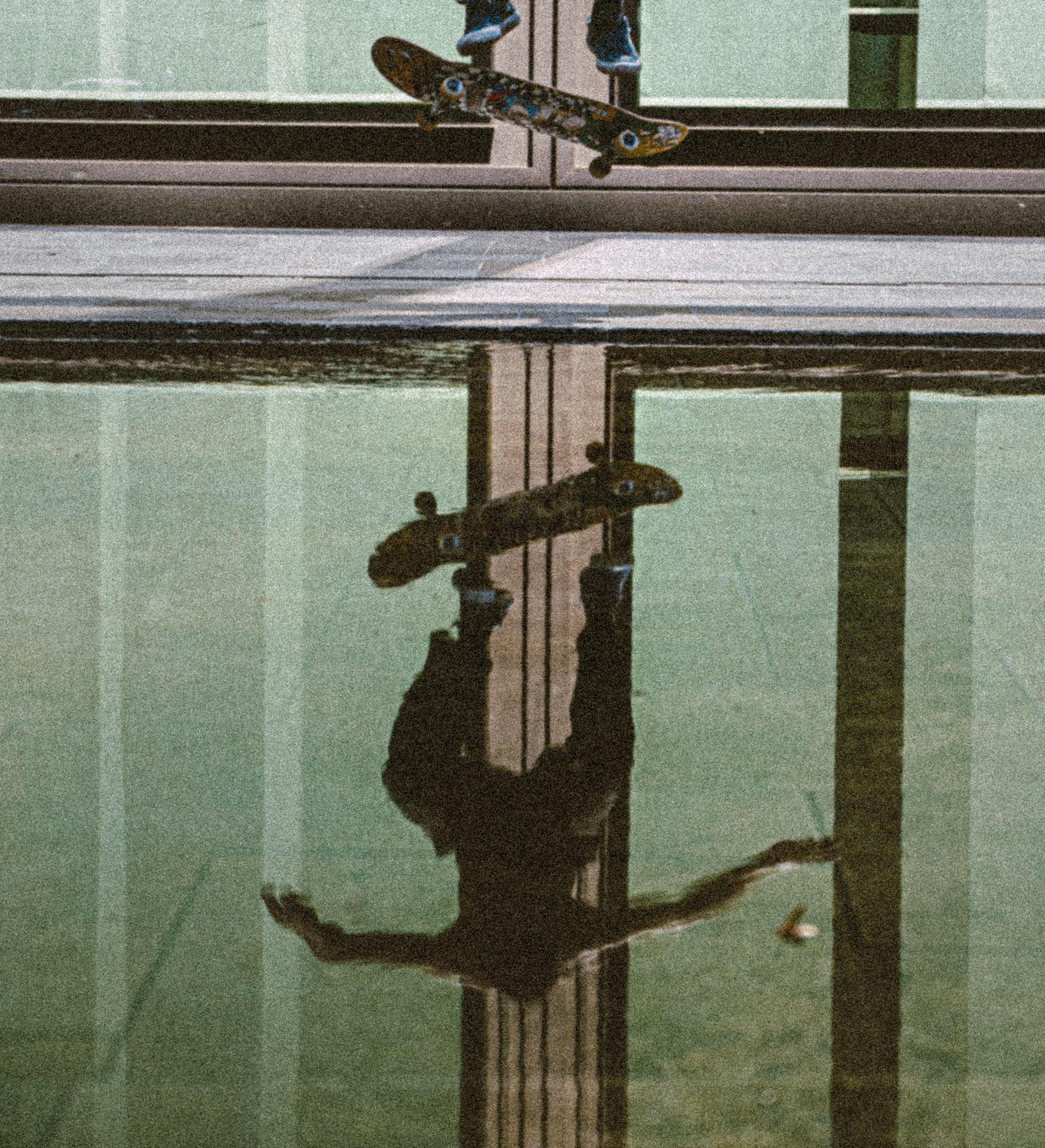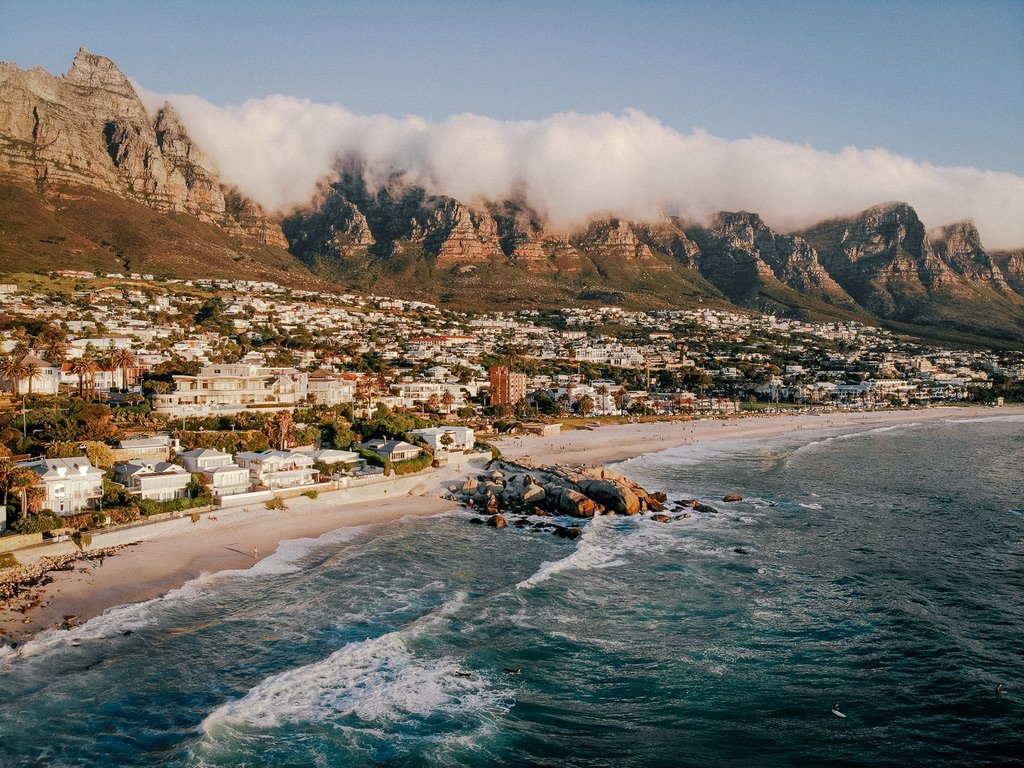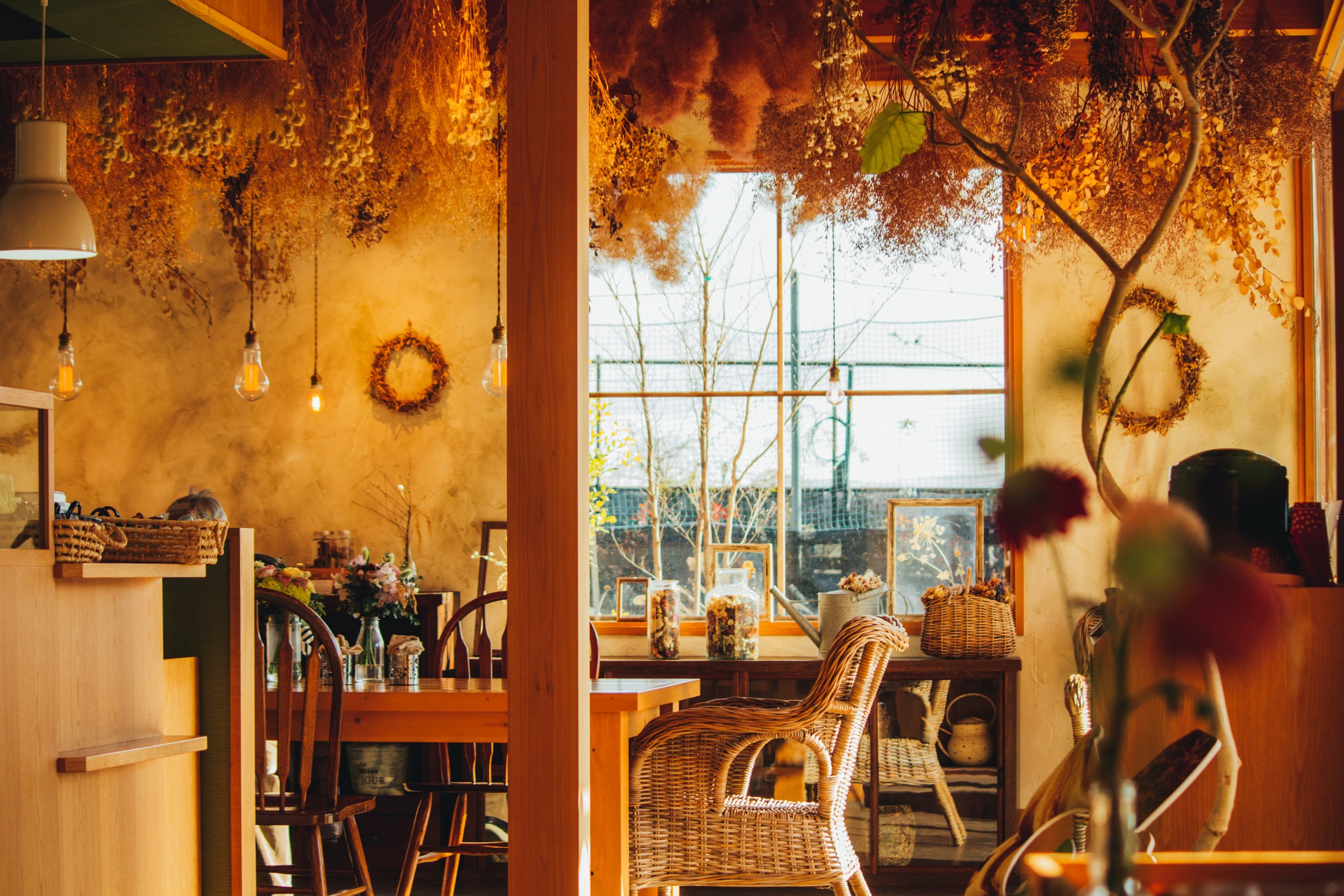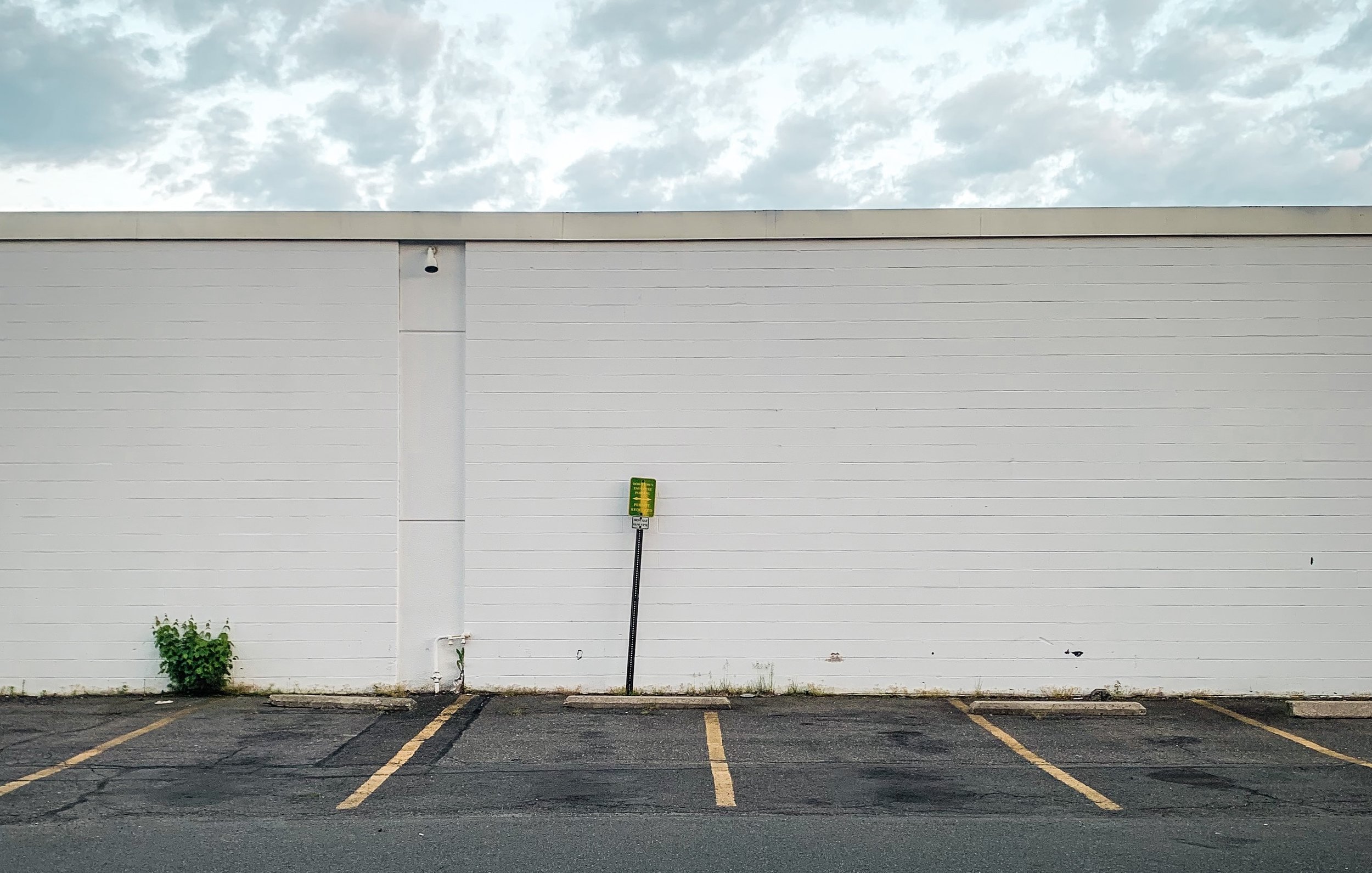To the Divorcée at the Dive Bar

I was trying to write and getting nowhere when you sat down next to me and lit a cigarette. You had an angular face, all slanting edges framed by a nest of greying curls. Our conversation started in the middle, as though we had been speaking for hours and had already switched to the casual intimacy of “du” rather than the formal “Sie.”
“No one notices women at my age anymore,” you said. There was an edge to your voice, despite the smile. “They treat us like we’re all just old Muttis.”
You, however, would not be ignored. I liked you immediately. Even as you remarked on how strangers’ eyes slid past you, I couldn’t help but notice that here you were in my old local bar, where no one knew me anymore, but everyone seemed to know you. The owner, Turadj, greeted you by name.
Die Legende, as everyone calls it, exists in the liminal space where the shisha bars of Hasenheide in Neukölln give way to the tony apartment buildings of Bergmannkiez in Kreuzberg. Turadj, who hails from Tehran, opened the place in 2004 and named it Die Legende von Paula und Ben after a 1973 film from the GDR. The bar has the soul of a dive, even if the drinks are much too good for it to qualify as one. When I first stumbled across the place in 2014, I fell in love. Here was the neighborhood bar of my dreams—a small, smoky hole-in-the-wall decked out in rumpled velvet with a crystal chandelier. It remains resolutely unchanged and unhip. Even now, it has no website or Facebook page. I first came here with a partner, then with friends and occasional lovers. Now, I come alone.
One month earlier, in the unearthly dark of a Northern European January, I’d moved back to Germany, to a sublet just above Die Legende, a five-minute walk from my old address in Berlin. I was fleeing New York, and the new flat was everything my New York apartment was not: an airy Bauhaus loft with two floors and a view of a gothic cathedral. My first evening in it, I wandered through the rooms like a cat, overwhelmed by all the quiet and space that were suddenly mine.
When you asked me what I was doing here, I replied in stilted German that whenever I didn’t know what to do, I went back to the familiar.
*
The first time I moved to Berlin, I realized within hours of arriving that I was in over my head. There was no closet in my fifth-floor walk-up, so all my belongings stayed lodged in two overstuffed suitcases. The cashier at the grocery store glowered as I held up the line fumbling with my change. My landlady, a famous gynecologist who still wore leather pants in her mid-sixties, demanded I explain my views on Abtreibung (abortion) at dinner that night. There I sat, in front of a dozen strangers, my tongue slipping over alien syllables as I tried to discuss Frauenrechte (women’s rights) with the vocabulary of a five-year-old.
For that first year, my daily language classes were one of the few anchors that kept me sane. The school in Neukölln was the cheapest I could find: a musty, cement-walled space painted a lurid shade of green. One week into class, the teacher, a pale-eyed woman with severe cheekbones, made a French girl cry. “Please, stop shouting at me,” she said. “I just don’t understand what you want.”
We were an odd mix of students, with little in common save for a certain grim resignation. There we were, every day at 9 a.m., to learn the awful German language whether we liked it or not. There were Ukrainians fleeing the chaos in Crimea, several South Koreans, a couple of Turkish twenty-somethings, a handful of Americans and Brits who could barely utter a sentence, and a 17-year-old diplomat’s daughter from Benin, who was by far the best of us at the language, yet felt homesick in this cold, unfriendly city. All of us had been someone else in our home countries, but there was little point in talking about that here.
There is a duality that comes from living with a language you did not acquire by birth. When I began dreaming in German during those first few months, I noticed that a separate version of myself was starting to grow, almost like a new child. I spoke haltingly at first, then recklessly, caring less about mistakes even as they tumbled out of my mouth.
My German self is bolder, blunter. Even now, I prefer to argue in German, because I choose my words carefully and I am unafraid to hold my ground. Part of this is the nature of the language itself, part of it was the people from whom I learned—Berliners have no qualms about speaking their minds, regardless of whether you asked. Much of it is that I can throw these foreign words around like Monopoly money, unburdened by a lifetime of cultural weight. “Ich liebe dich” is not the same as “I love you,” even if both are true.
Maybe that’s why it was easier to ask the question that came next in our conversation: “Bist du noch verliebt?” Are you still in love? A bold, borderline rude thing to say to a stranger, I know, but I was two drinks deep and past caring. I thought you might be offended, but instead you just looked at me as though I had said something absurd.
“Natürlich,” you said. You had been married for 12 years. You still referred to him as “mein Mann,” your husband, to me until you caught yourself once or twice. When you spoke with him, you could feel yourself falling back into old syntactic rhythms, too, the cadence of your conversations dictated by habit. An outside observer might never realize that anything was amiss, even though everything was different now.
*
One month before you told me about your divorce, a man came to JFK to tell me he wanted to marry me. It was a statement, not a question, and we both knew it was a last-ditch effort. He mapped out a whole future, all of the things that could still be made real and ours. We were drinking dirty martinis at a hotel bar while I waited for my one-way flight. He noted, not unkindly, that my hands were shaking as he held them.
“There is a duality that comes from living with a language you did not acquire by birth.”
No one understood why I was returning to Berlin three years after leaving it, least of all him. I had plenty of rationalizations—cheaper rent, a functional government, and so on—but none of them added up, not even in my head. I told almost no one until days before my departure, until it was too late for me to back out of my own half-formed plan. It was snowing in the East Village when I told him I had already booked a non-refundable ticket. We sat in an empty restaurant on First Avenue in the middle of the afternoon, picking at cold French fries, as I said that I could not promise I would come back.
“You’re crazy,” he said, six days later, as I packed up my belongings out of our shared apartment. “This makes no sense.”
It was too difficult to explain that I knew in my marrow that the relationship, that the whole track I was on, was wrong. Two exhilarating, exhausting years locked in perpetual combat with the city of New York had worn me down to a nub. I was burnt out, running hard on fumes, staying out late almost every night. Often, I’d find myself walking alone for hours through the darkening streets of Chinatown and the Lower East Side, unable to face what lay waiting at home.
During my years in New York, my anxiety dreams were often in German. Everyone around me spoke fluidly as I struggled to respond, my Dativ, my Akkusativ, my Der-Die-Das all tangled. Language is a fragile, living thing, and my German self withered when stripped of context. My memory began playing tricks, translating past conversations into English to the point where I could only recall a vague sense of meaning.
“Language is a fragile, living thing, and my German self withered when stripped of context. My memory began playing tricks, translating past conversations into English to the point where I could only recall a vague sense of meaning.”
“How is it possible to feel exiled from a language that isn’t mine? That I don’t know? Maybe because I’m a writer who doesn’t belong completely to any language,” wrote Jhumpa Lahiri, the Bengali-born writer who chose to immerse herself in Italian. When she begins writing in this irrationally adopted tongue, she says, “I don’t recognize the person who is writing in this diary, in this new, approximate language. But I know that it’s the most genuine, most vulnerable part of me.”
Whole chapters of my life, whole friendships and relationships from Berlin, only make sense through a specific linguistic filter. When they began to slip away, I felt an inexpressible grief, a sense of loss the borders of which I could not define. And it did sound crazy to say that some essential part of my self had gone missing. I didn’t know if I would find her again in Berlin, but I had to try.
*
When I landed in Tegel Airport on January 2nd, I felt more alone and alive than I had in years. My bicycle, which had sat rusting in a basement for three years, was covered in grime and missing a wheel, barely recognizable save for the word CALIFORNIA written in faded, flaking paint. It barely seemed worth salvaging, but my former landlady, who helped me pull out the wreckage, wouldn’t hear of throwing away something still useful. As we hauled it to the repair shop, she said, “Besides, we both know you’re sentimental and value old things.”
I started German classes again, this time with a new cast of frustrated faces laboring through convoluted sentence structures. The school was fancier, the students—mostly professionals and government officials on expat packages—less desperate. Most nights, I went straight home afterwards, but sometimes I found it too hard to think with all the silence. That’s how I found myself stepping off the U7 and walking towards the neon sign that said BAR.
*
You said that when you weren’t sure where to go, you, too, came back to this old haunt and noticed how its surroundings had changed. The year you got married, Tempelhof was an airport, not an urban park. Wowereit was mayor, and anything and nothing was possible. Berlin still contained vast, abandoned spaces—bullet-scarred, graffiti-sprayed opportunities for the taking. Artist squats dotted the former East and all the best parties were illegal. Back then, my rent for the flat up the street from Die Legende was €335 a month, and the neighborhood kids stole the hubcaps of the lone BMW on the block. Now, there was a gluten-free bakery and a gastropub with natural wine where none of the bartenders spoke German.
“Berlin hat sich geändert,” Turadj said. Berlin has changed. It was a common refrain here.
We both nodded. You pulled out your wallet to show me your three children. In the photo, everyone is smiling. “Die sind aber so schön,” I said. They’re so beautiful. The German words still felt strange on my tongue, but they grew easier as the gin hit.
“We had a whole life together—a whole life!” you said, taking another drag. You weren’t sure how to parse apart the trappings that defined you to the outside world—apartment, husband, children, all your mutual couple friends—from the person you were before they arrived. “How does anyone start over at my age?”
I had no words for you. I had no roadmap for my own reinvention, let alone a stranger’s. And anyway, we weren’t drinking to come up with solutions. By then, the bar was packed and the air so dense with smoke that I could feel a slow-building nicotine buzz. It was February 2020 and the year still felt full of the enormous potential for the unknown. None of us knew then that the world would soon stop. That night, it was too late, too loud, too good, a moment suspended apart in time.
“It’s all right,” you told me. “You’re still young.”
About the Author
Diana Hubbell has been a food and travel journalist for more than a decade for publications including The Guardian, The Washington Post, Atlas Obscura, Travel + Leisure, Condé Nast Traveler, Eater, Wired, VICE, and Playboy, among others. Currently based in New York, she still feels at home in Berlin and Bangkok.
Read Diana’s “Behind the Essay” interview in our newsletter.
Header photo by Magdalena Luise Mielke.
Edited by Aube Rey Lescure.



